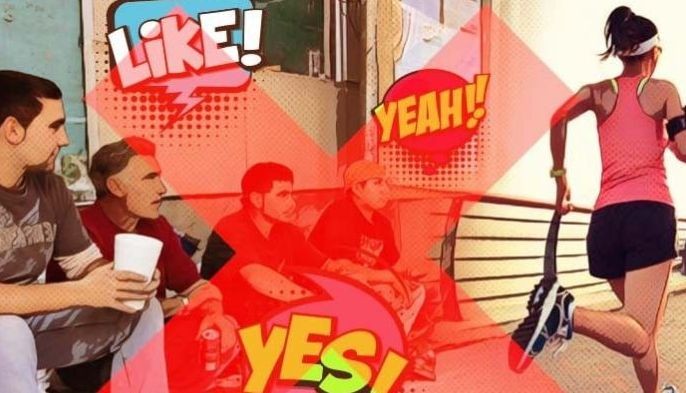MANILA, Philippines — Have you ever felt unsafe or uncomfortable walking along the streets, taking public transportation or even just checking your social media accounts?
The proposed measure seeking to impose stiffer penalties on acts from cat-calling to stalking has just lapsed into law, said one of its principal authors Sen. Risa Hontiveros.
Related Stories
READ: Senate ratifies bicam report on Safe Spaces Act
The bill is formally called “Safe Streets and Public Spaces Act” but it has also been coined as the “Bawal Bastos” law.
And this seeks to ensure the protection of women and all members of the lesbian, gay, bisexual and transgender community.
While Malacañang has yet to issue the signed republic act, Philstar.com scoured through the bicameral committee report for the proposed act’s salient points.
Here are some of the acts that may be penalized under the new law.
Gender-based streets and public spaces sexual harassment
The following are the specific acts listed as gender-based streets and public spaces sexual harassment that may be punishable from community service of 12 hours up to arresto menor or 11 to 30 days imprisonment for the third offense:
- cursing
- catcalling, defined as “unwanted remarks directed towards a person commonly done in the form of wolf-whistling and misogynistic, transphobic, homophobic, and sexist slurs”
- wolf-whistling
- leering and intrusive gazing
- taunting
- cursing
- unwanted invitations
- misogynistic, transphobic, homophobic and sexist slurs
- persistent uninvited comments or gestures on a person’s appearance
- relentless requests for personal details such as name, contact and social media details and destination
- the use of words, gestures, actions that ridicule on the basis of sex, gender or sexual orientation, identity and/or expression including sexist, homophobic, and transphobic statements and slurs
- persistent telling of sexual jokes
- use of sexual names, comments and demands
- any statement that has made an invasion on a person’s personal space or threatens the person’s sense of personal safety
Meanwhile, the following acts may receive graver punishment of imprisonment of up to a month and one day and up to six months for the third offense:
- making offensive body gestures at someone
- exposing private parts for the sexual gratification of the perpetrator with the effect of demeaning, harassing, threatening or intimidating the offended party including flashing of private parts, public masturbation, groping and similar lewd sexual actions
The law also imposes six months imprisonment or arresto mayor in maximum period for the third violation of the following acts:
- stalking
- any of the above-mentioned acts accompanied by touching, pinching or brushing against the body of the offended person
- any touching, pinching or brushing against the genitalia, face, arms, anus, groin, breasts, inner thighs, face, buttocks or any part of the victim’s body
Gender-based online sexual harassment
Gender-based online sexual harassment is defined as:
“... online conduct targeted at a particular person that causes or likely to cause another mental, emotional or psychological distress, and fear of personal safety, sexual harassment acts including unwanted sexual remarks and comments, threats, uploading or sharing of one’s photos without consent, video or audio recordings, cyber-stalking and online identity theft.”
The following acts fall under gender-based online sexual harassment:
- Use of information and communications technology in terrorizing and intimidating victims through physical, psychological and emotional threats
- Unwanted sexual misogynistic, transphobic, homophobic and sexist remarks and comments online whether publicly or through direct and private messages
- Invasion of victim’s privacy through cyberstalking and incessant messaging,
- Uploading and sharing without the consent of the victim, any form of media that contains photos, voice or video with sexual content
- Any unauthorized recording and sharing of any of the victim’s photos, videos, or any information online
- Impersonating identities of victims online or posting lies about victims to harm their reputation
- Filing false abuse reports to online platforms to silence victims
The above-mentioned acts may be penalized through prision correccional (six months and one day to six years) in its medium period or a fine of not less than P100,000 but not more than P500,000.


